Obligations for Every Employer
Australia's industrial relations system has come a long way since it first began in 1904. Over a century ago, landmark decisions of a basic minimum wage and the right to take leave were enormous steps forward in the working lives of the average Australian. In 2015, our modern system places greater emphasis on achieving consistency across all industries and creating a fairer system for employers and employees alike.
The Fair Work Act 2009 (FW Act) sets out requirements that all businesses, even small ones, need to be aware of. Three of the main areas which relate to employer obligations are the National Employment Standards (NES), the Australian award system, and Workers Compensation.
Employee Entitlements and National Employment Standards (NES)
The phrase "employee entitlements" covers many aspects, from hours worked and the pay rates which apply, to when breaks must be taken and much more. Rules regarding an employee's exact entitlements are set out under an award, a registered agreement or an employment contract. Agreements and contracts can offer additional benefits, but cannot be less than what is provided for in the NES or any award which may apply.
Briefly, the 10 NES categories are:
- Maximum weekly hours - A maximum of 38 ordinary hours per week.
- Requests for flexible working arrangements - In certain circumstances, employees can request to change the hours or pattern of their work and the locations of their work.
- Parental leave and related entitlements - Includes maternity, paternity or partner leave, adoption leave, special maternity leave and the right to return to one's old job.
- Annual leave - Full and part time employees must receive a minimum of four weeks per year; shift workers may be entitled to more.
- Personal carer's leave and compassionate leave - Paid sick and carer's leave and unpaid carer's leave to look after sick family members or to help during an emergency.
- Community service leave - Includes voluntary emergency management activities and jury duty.
- Long service leave – Extra leave granted after working for the same employer for a long period of time .
- Public holidays – Different entitlements for employees working on public holidays.
- Notice of termination and redundancy pay – Notice periods for employers and employees, entitlements and unfair dismissal procedures.
- Fair Work Information Statement – Required to be given to every new employee prior to beginning a new job.
The Fair Work Ombudsman website www.fairwork.gov.au is an excellent point of reference for NES guidance for both employers and employees. It includes a number of helpful best practice reference documents, including "Small Business and the Fair Work Act".
Awards
There are 122 industry and occupation awards that cover most people working in Australia, so it's important for business owners to know their responsibilities to an employee under an award. There are two main types of awards in the Australian workplace relations system:
- Modern awards; and
- Award-based transitional instruments (including former federal and state awards created before 27 March 2006), which are being reviewed.
The Fair Work Commission sets award pay rates and conditions and also works as a point of reference for dispute resolution. Business owners or employees wishing to study a specific award and its requirements can search on the Fair Work Commission website www.fwc.gov.au .
Workers Compensation
If an employee becomes sick or injured at work or because of the work they do, they may be eligible for an insurance payment by submitting a workers compensation claim. Such payments help an employee by covering their wages whilst they are not at work and assist with medical expenses and any rehabilitation they may require.
An employer must take out workers compensation insurance to cover both themselves and their employees. From 1 September, 2015, the regulatory and insurance functions of what was once WorkCover NSW have been split between three separate entities:
- State Insurance Regulatory Authority (SIRA) – for workers compensation and third party insurance regulation;
- SafeWork NSW – for work health and safety regulation and work site inspections; and
- Insurance and Care NSW (icare) – for improving service delivery and claim tracking.
The move toward these separate agencies aims to address WorkCover's conflict of interest in its role as both regulator and insurer.
Controversial changes to the WorkCover scheme in 2012, which resulted in the drastic reduction of medical benefits to injured workers, have now been wound back, with NSW Premier Baird believing they "went too far". It's not only workers who will benefit from the government's about face on earlier cuts. Employers are set to benefit too, with performance improvements in workplace safety and injury prevention being rewarded with premium discounts of between 5-20 per cent. All up, some $1 billion in benefits will be restored to injured workers and businesses.
Pending the launch of individual websites for the three new agencies, WorkCover's existing website www.workcover.nsw.gov.au still holds all relevant information for employers and employees alike.
Relevant websites for the other states and territories are:
- Australian Capital Territory - www.worksafe.act.gov.au/health_safety
- Victoria - www.worksafe.vic.gov.au
- South Australia - www.rtwsa.com
- Tasmania - www.workcover.tas.gov.au
- Western Australia - www.workcover.wa.gov.au
- Queensland - www.worksafe.qld.gov.au
- Northern Territory - www.worksafe.nt.gov.au/home.aspx
For professional and up to the minute advice on how best to meet your business obligations in this area, contact the KDA Group on 02 4861 8383 and speak to one of our consultants.
About Us
Backed by years of experience and knowledge in business accounting and taxation, KDA Group has grown to a team of 20 committed staff servicing the needs of clients Australia wide.
Our Services
At KDA Group we aim to provide you with advice when your business needs it, not just when you ask for it.


